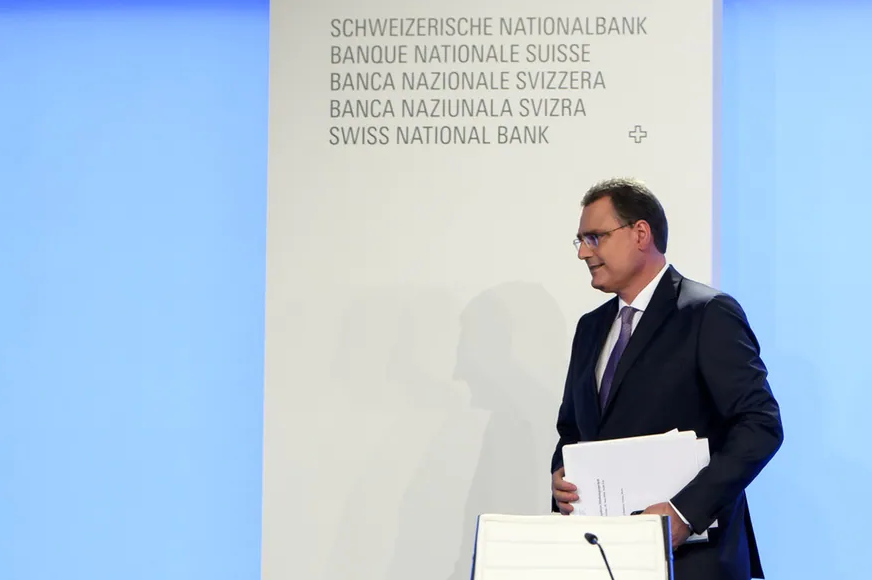Jordan, shown at a news conference last year, warns of neglecting the risks of inflation. Keystone/Anthony Anex The Swiss National Bank (SNB) can expand its balance sheet further if needed, says chairman of the board Thomas Jordan. “A big balance sheet is per se no problem. We can expand the balance sheet further, if monetary policy so requires,” he told the Neue Zürcher Zeitung newspaper in an interview published on Saturday. The SNB’s holdings of foreign exchange have ballooned to more than CHF900 billion (.1 trillion) due to its long-running campaign to weaken the franc via interventions. That practice not only drew scrutiny from the United States Treasury — the central bank’s huge pile of assets also exposes it to big swings in prices. The franc is still
Topics:
Swissinfo considers the following as important: 3.) Swissinfo Business and Economy, 3) Swiss Markets and News, Business, Featured, newsletter
This could be interesting, too:
Nachrichten Ticker - www.finanzen.ch writes Die Performance der Kryptowährungen in KW 9: Das hat sich bei Bitcoin, Ether & Co. getan
Nachrichten Ticker - www.finanzen.ch writes Wer verbirgt sich hinter der Ethereum-Technologie?
Martin Hartmann writes Eine Analyse nach den Lehren von Milton Friedman
Marc Chandler writes March 2025 Monthly

Jordan, shown at a news conference last year, warns of neglecting the risks of inflation. Keystone/Anthony Anex
The Swiss National Bank (SNB) can expand its balance sheet further if needed, says chairman of the board Thomas Jordan.
“A big balance sheet is per se no problem. We can expand the balance sheet further, if monetary policy so requires,” he told the Neue Zürcher Zeitung newspaper in an interview published on Saturday.
The SNB’s holdings of foreign exchange have ballooned to more than CHF900 billion ($1.1 trillion) due to its long-running campaign to weaken the franc via interventions. That practice not only drew scrutiny from the United States Treasury — the central bank’s huge pile of assets also exposes it to big swings in prices.
The franc is still highly valued, and inflation is just slightly below zero, according to Jordan. Still, “we only intervene as needed.”
He also rejected focusing monetary policy more closely on the exchange rate and said there still was a lot of slack left in the economy.
“It would be completely premature to begin shrinking the balance sheet and tightening monetary conditions,” he said. “It would be wrong to signal to the world now that the SNB will be the first central bank to usher in a restrictive policy.”
Asked whether the SNB was prepared to accept an inflation rate of 2% and more, similar to the US central bank, Jordan said every country was faced with a different situation.
“History has taught us a lesson: A recession is most likely if inflation gets out of control and measures are needed to fight it.”
It’s preferable to stabilise increasing prices at a maximum rate of 2%, he added.
Tags: Business,Featured,newsletter








